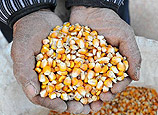
"In the 1960s, in order to create farmland, we got rid of the mangrove," he says. In the 1990s, duck farms sprouted around the village and the resulting pollution caused 70 percent of the mangrove forest to disappear.
Tang says this led to storm damage in the villages.
"The mangrove forest naturally protected the villages, reducing the impact of natural disasters," says Ou Xinzhi, a Meilan district official.
"The seafood and fruit are nutritious and delicious because the mangrove leaves make the seawater and soil rich in micro-organisms," Ou says. "That might explain why Xinghui villagers have such long lives."
"So if we ruin the mangrove, we ruin everything here. We must endeavor to protect it."
In recent years, the duck farms have been removed by the local government and the duck farmers relocated and compensated.
Now the mangrove forest in Dongzhai Harbor is recovering.
Ou says some companies are planning to build holiday resorts near the mangrove reserve, if they receive positive environmental evaluation reports.
"As long as we have sustainable and scientific management, environmental protection and economic development are not in conflict, but rather benefit each other."















 Beijing experiences windy weather, temperature drop
Beijing experiences windy weather, temperature drop


![]()
